Iranian Football Player Suspended For Solidarity With Protesters
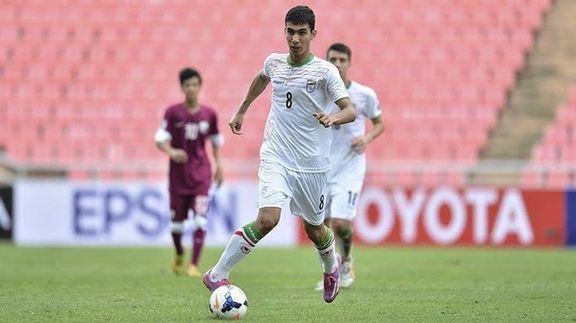
An Iranian football player has been banned from playing for his team after he refused to celebrate a winning match, saying the people of Iran are in mourning.

An Iranian football player has been banned from playing for his team after he refused to celebrate a winning match, saying the people of Iran are in mourning.
Reza Shekari, 24, a member of Gol Gohar club, who scored one of the goals against another team on Saturday, told reporters that he did not express happiness after scoring the goal because of the situation in the country and in respect to people who mourn those killed during antigovernment protests.
He was summoned for his comments by the disciplinary committee of the Iranian Football Federation to be suspended.
He also emphasized that he and his teammates are "forced to play football" these days.
Within the past few days, some reports said Iran’s football federation has put pressure on players to celebrate after scoring goals as is the routine in soccer. However, the federation denied the reports.
Earlier documents received by Iran International revealed that the ministry of sports in a letter had asked sports federations to prevent the symbolic gestures by athletes who support the protests.
In the past 4 months, Iranian athletes at different levels have joined the nationwide protests following the death of Mahsa Amini in police custody.
Athletes by refusing to show happiness after scoring goals, not singing the anthem of the Islamic Republic, and other symbolic gestures have shown solidarity with protesters.
The European Union on Monday sanctioned Iran’s Sports Minister Hamid Sajjadi for suppressing athletes. In its statement the EU said Sajjadi has prevented Iranian athletes from speaking against the suppression of protests.
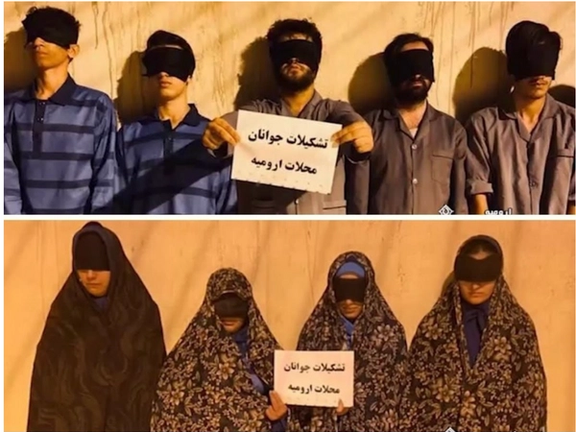
An activist group says sixteen young people arrested in Urumieh in November, including several minors, have been tortured and threatened with rape to incriminate each other.
Follow Up Iran (komite-ye Peygiri-ye Bazdashtshodegan) which on its twitter account introduces itself as a group of activists said in a brief report on its Telegram page Sunday that the IRGC’s intelligence organization in West Azarbaijan Province has been torturing these young people to ‘confess’ against each other and say their group was in contact with foreign intelligence services.
State media reported in November that intelligence bodies had arrested 25 members of Youth of Urumieh Neighborhoods and accused them of trying “to deceive young people and incite them [to riot]”. The reports came along with group photos of two groups of blindfolded men and women holding signs with “Urumieh Neighborhoods’ Youth Organization” printed on them.
A report by the official news agency IRNA on November 17 quoted “an informed source” as saying that the “principal members of the organization were in contact with [foreign] spying agencies” and attributed the arrests to the Revolutionary Guards (IRGC) intelligence organization of West Azarbaijan.
“They have been forced into incriminating each other during interrogations and as a result of duress including beatings and threats of rape,” Follow Up Iran claimed. The activist group has also said those arrested did not know one another before getting arrested, despite IRGC’s claim that they belonged to Javan-e Mahallat-e Urumieh.
Follow Up Iran activists says in their report that sixteen, including eight young men and eight young women, are currently being prosecuted in the case. The report names eight of the detainees, including two teenagers, and says they were released on bail and are awaiting trial by the Revolutionary Court of Urumieh. The youngest among them is a fifteen-year-old girl, the report says.
The group called Javan-e Mahallat-e Urumieh is still active on social media and has never reported the arrest of any of its members. The group last tweeted on January 19.
Anonymous youth groups often calling themselves “neighborhood youth” of various Iranian cities and town, sometimes more than one in each place, emerged on social media in mid-October.
The groups sprang up after Tehran Youth (Javanan-e Tehran) managed to mobilize several successful “neighborhood-centered” protests and thousands of protesters in several towns and cities at a time of serious internet disruptions only through their activity on Twitter, Instagram and Telegram.
Some of the neighborhood groups have since then formed larger coalition groups, namely the Voice of People Coalition (Etelaf-e Seda-ye Mardom) which supports the leadership of Iran's exiled Prince Reza Pahlavi and the United Youth of Iran (Etehad-e Javanan-e Mahallat-e Iran) which said it was a coalition of thirty different youth groups and published a manifesto in December. The Urumieh youth group does not appear to be in either coalition.
Torturing detainees to incriminate themselves and others according to a scenario fabricated by intelligence bodies has several precedents. The so-called “confessions” of the accused is usually used for propaganda and are aired by the state television.
In 2019, Mazyar Ebrahimi, a businessman, disclosed how he was tortured non-stop for forty days by the intelligence ministry into confessing to spying for Israel and assassinating Iranian nuclear scientists between 2010 and 2012.
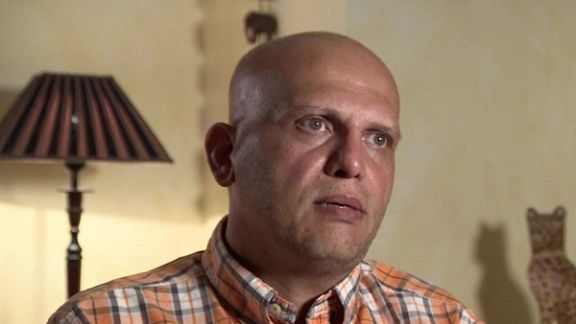
Ebrahimi’s confessions were broadcast by the state broadcaster (IRIB). He also said the judge who tried him and others on these bogus charges, Abolghasem Salavati, constantly threatened them with a death sentence to make them accept “to cooperate” with their interrogators.
In a rare incident, Ebrahimi and others were exonerated when the rival IRGC intelligence found discrepancies in the testimonies fabricated by the intelligence ministry.
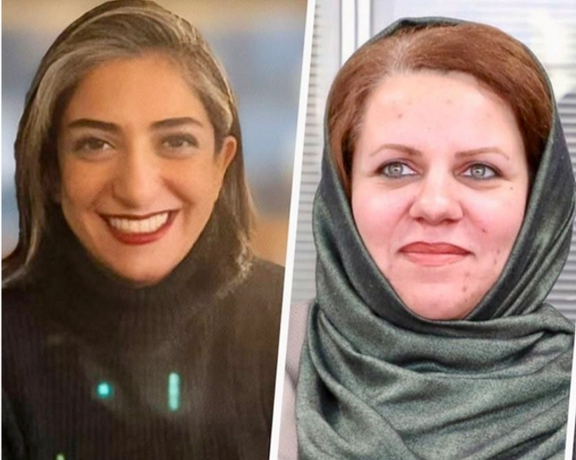
With the arrest of two more journalists in Iran the number of media activists arrested since the beginning of nationwide protests reached 69.
News outlets have identified the two female journalists as Saeedeh Shafiei and Mehrnoosh Zarei.
Hassan Homayoun, the husband of Saeedeh Shafiei said in a tweet Sunday that the writer and civil activist was arrested by the security forces at their home.
The US-based Human Rights Activists News Agency (HRANA) also reported that Shafiei was transferred to an unknown place and there is no information about the reasons for her arrest.
HRANA further reported that another journalist identified as Mehrnoosh Zarei has been detained and transferred to the notorious Evin prison in the capital Tehran.
“The security forces searched Zarei's house without introducing their institutional affiliation and after confiscating some of her digital equipment, they took her to the prison,” wrote HRANA.
Zarei has a history of cooperation with ILNA, ISKA, Chelcheragh and Anna news agencies.
According to a report by a committee that follows up on the situation of the detainees, 69 journalists have been arrested during the protests following the death of Mahsa Amini in police custody in mid-September with some of them freed on bail.
The report says several journalists have been sentenced to imprisonment and banned from leaving the country.
The arrest of media activists and issuing heavy sentences for them comes as the judiciary previously claimed that "no journalist is in prison because of his/her job."
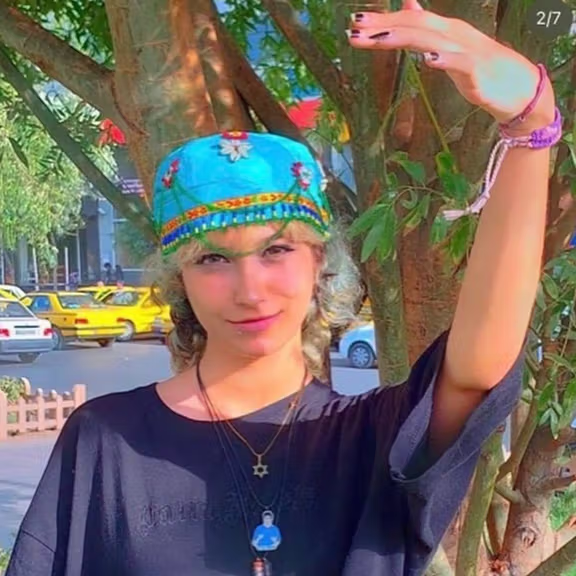
Father of a detained Iranian protester says his daughter's lawyers have resigned because the Judiciary has refused to allow them “a face-to-face meeting with the defendant”.
Armita Abbasi’s father says attorneys Mohammad Esmailbeigi and Sonia Mohammadi have resigned because they were not able to defend her daughter properly.
Esmailbeigi, who could get the court’s approval for representing Armita, was not granted permission to meet with his client after four days, which forced him announce his resignation on Twitter.
Armita's mother also wrote on Twitter that the lawyer's explanation makes sense because he does not have the opportunity to defend Armita.
Some other lawyers have reported that their letters of attorney were not accepted in similar cases by the courts of the Islamic Republic.
Most detained protesters and dissidents are not allowed to have their own lawyers and their trials are held in a quick manner behind closed doors.
Armita Abbasi, 21, was arrested in late September during the protests following the death of Mahsa Amini in hijab police custody. According to leaked reports, she was gang-raped many times after being arrested, for which she was taken to hospital. Security forces quickly kidnapped her from the hospital and took her back to prison.
After Armita Abbasi’s arrest, her family went to the hospital in Karaj, but the agents took her out of before they arrived.
Alborz province judiciary said on November 8 that "the news published about the death or rape of Armita Abbasi is baseless and not true."
The trial of Armita Abbasi is scheduled to be held on January 29.
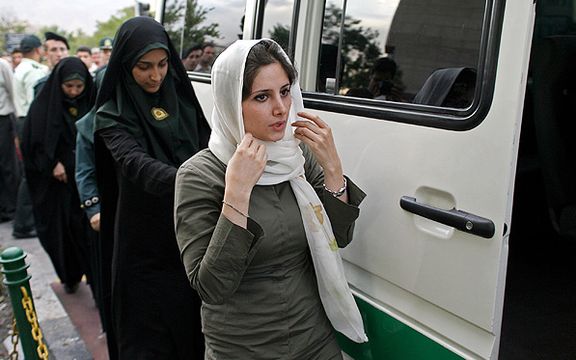
Some politicians and pundits in Iran warn that the government is again pushing the wrong policies that led to the recent wave of protests and uprising in Iran.
Criticizing the insistence of hard-liners on hijab, Azar Mansouri, the female leader of reformist Unity of Nation Party in Iran has argued that the reason why Iranian women burned their headscarves during the recent protests is that the government tried to impose a certain dress code on them in the name of religion.
She said in an article in Etemad newspaper that those who made this mistake did not understand that Islam came to give dignity to all human beings regardless of their gender. "What you are doing is like cutting off the branch you are sitting on," Mansouri told Iranian officials.
Mansouri said people remember viral videos before the protests that started in mid-September, in which a woman was begging the morality police not to arrest her ailing daughter, or many other videos that showed the police's brutality while arresting women for not fully respecting the dress code the government imposed on the people. "Mahsa Amini's death in custody flared up a fire that was under the ashes," Mansouri said in a statement that was identical with what centrist commentator Sadeq Zibakalam had said the previous day.
Mansouri quoted Iranian scholars as saying that "The Woman, Life, Freedom movement started as a result of accumulated dissatisfactions and the widening divides between the government and the Iranian society. She warned that the uprising could still re-emerge.

The politician expressed hope that the government will adopt a realistic policy about how to deal with the people and will start serious legal and structural reforms. However, she warned that what people hear from official podiums erodes any hope in reforms. She pointed out the arrest of Iranian artists for removing their hijab and heavy sentences for them, as well as the killing of many young men and women during the protests as an indication that reforms are unlikely in Iran.
Opposition to the government's heavy-handed approach to enforcing hijab and punishing detained protesters has been on the rise during the past days even by some Muslim clerics. Mohammad Ashrafi-Esfahani has said that "Executions carried out following recent protests are not based on sound legal foundations." He also pointed out that "many top clerics are silent about it because they think no one in the government will care for their attestations."
However, Ashrafi-Esfahani stopped short of saying that many top clerics fear retribution by the government if they speak against the hardliners who control the government and the Judiciary system and are supported by Supreme Leader Ali Khamenei. Nonetheless, the cleric said: "It might help if the leader in a bid to calm the situation tells the Judiciary to deal with prisoners compassionately. This will also be a good publicity for the Islamic Republic."
In her article in Etemad, Ms. Mansouri observed that Iranian women have expressed their opposition to the dress code imposed by the government all along in the past four decades. They have also objected to discrimination against women under the Islamic Republic. But nobody paid any attention to their grievances. She argued that there were no serious confrontations between women and the government until hardliners boldly introduced the morality police.
In the meantime, she said, a government-imposed glass ceiling prevented Iranian women's access to equal rights with men in the areas of education and employment. She concluded that it was this unfair treatment of women and ignoring their rights that triggered their revolt in September and what is now known as the ‘Woman, Life, Freedom’ movement.
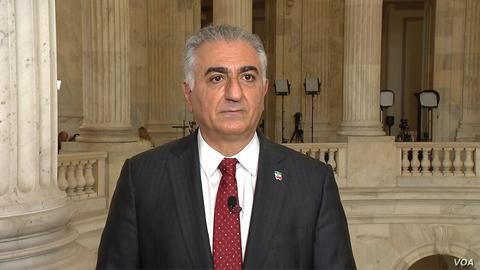
Iran's exiled crown prince, Reza Pahlavi, has urged pro-democracy forces to unite following arguments over endorsing him as trustee in transition to secular rule.
“I’m extending my hand, once again, for cooperation to all pro-democracy forces, including individuals, parties and groups, to support the Iranian national revolution on the basis of three minimum common principles: Iran's territorial integrity, human rights-based secular democracy, and people’s right to determine the form of the [future] political system through a free vote,” he said in a statement published via his social media accounts Saturday.
The statement came after a petition endorsing him as representative of his supporters to lead a transition from the Islamic Republic to secular rule launched Tuesday by actor Ehsan Karami received over 300,000 signatures by Saturday. “This petition helps the people of Iran to express their opinion,” Karami said.
One of the first to support the campaign was expatriate Iranian football star Ali Karimi, a key supporter of the popular uprising, who has millions of followers on Instagram and Twitter. The number of signatures has now risen to over 350,000 on Sunday.
Karami said he had launched the petition because the exiled crown prince had in an interview with London-based Manoto TV asked the people of Iran to give him power of attorney to lead the movement against the Islamic Republic.
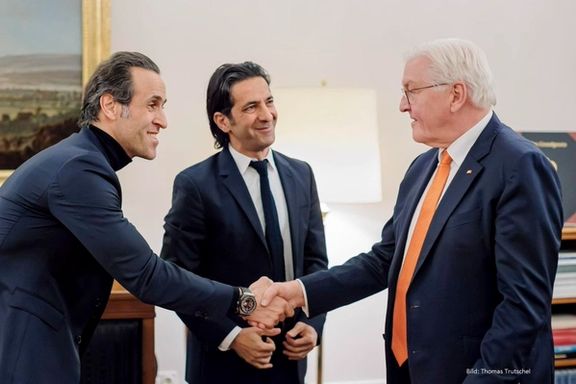
In response to a question why he was not openly accepting the leadership of the movement, Pahlavi said any kind of work, presumably lobbying with world powers and international organizations, required “a legitimate basis or some kind of power of attorney from inside Iran."
Signatories of the petition include several celebrities but so far Karimi is the only high-profile expatriate opposition figure recognized as one of the likely members of a future transitory council to have signed the petition and campaigned for it.
Other known figures representing the protest movement, including actress and human rights activist Nazanin Bonyadi, journalist and activist Masih Alinejad, actress Golshifteh Farahani, activist Hamed Esmaeilion, and Nobel Peace Laureate Shirin Ebadi have so far neither endorsed nor rejected the plea.
Some regime opponents imprisoned in Iran, including Manouchehr Bakhtiari have endorsed him. Bakhtiari is an ardent believer in reviving the monarchy. He is jailed for his anti-regime activism after his 23-year-old son Pouya was shot in the head during the November 2019 protests in Karaj.
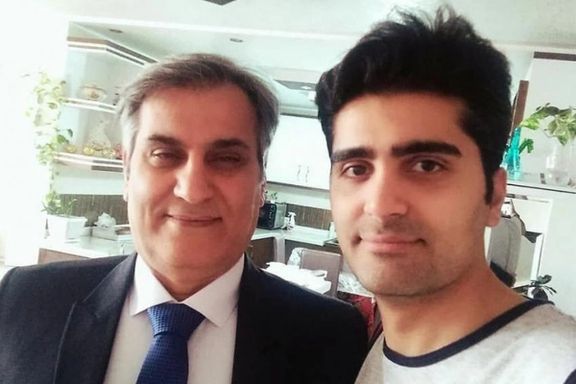
The petition has given rise to intense arguments on social media with those in favor tweeting with the hashtag “I endorse power of attorney” and others using the hashtag “I do not endorse power of attorney”. The exiled prince is currently among the top ten Persian-language hashtags on Twitter now.
In recent years, the former crown prince has not laid claim to the throne, and at least on one occasion said his own desirable government would be a republic rather than a monarchy, but many of his supporters, who always refer to him affectionately as ‘The Prince’ see him as the future king of the country.
“Based on the Iranian Constitution [of 1906], Prince Reza Pahlavi is the heir to the Iranian throne. There’s no plan for him to establish a government … This [power of attorney] is giving him permission to meet political representatives and officials of other governments,” Kamelia Entekhabifard, chief editor of the Persian website of The Independent, told the BBC’s Persian television Wednesday.
Entekhabifard argued that giving such power of attorney to the exiled crown prince would prevent others without proper credentials, a clear past, and well-defined demands to meet with foreign officials.
“At least the Prince is emphasizing the principles of territorial integrity of the country, freedom of religion, equal rights for all Iranians,” she said while stressing that Pahlavi has always emphasized it is the Iranian people who should decide their future form of government through free elections.
Others -- notably some republicans and leftist politicians and activists – reject giving power of attorney to the exiled crown prince while even some of his supporters say empowering one person is undemocratic and would pave the way for future troubles.
In their view, only a council consisting of prominent political figures and activists can be a true representative of the Iranian people in any talks over the future of the Islamic Republic with world powers.
“I endorse power of attorney”, the Marxist Iran Left Party (Fadaiyan-e Khlagh) said in a statement Saturday, “is undemocratic both is form and content” and argued that appointing the exiled crown prince as Iranians’ representative, without setting any conditions, is similar to the yes-no referendum in 1979 that determined Iran's form of government as an Islamic Republic and disregards the “political and civil society in the country”.
Proponents of endorsing the exiled prince as a representative say those who do not want him can propose their own candidates, but the revolution needs leadership.